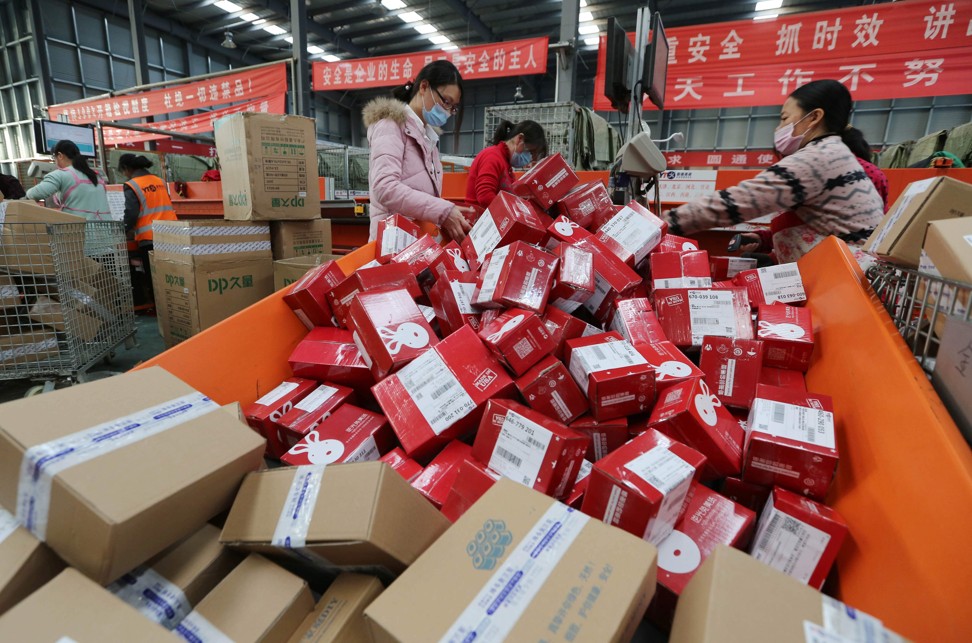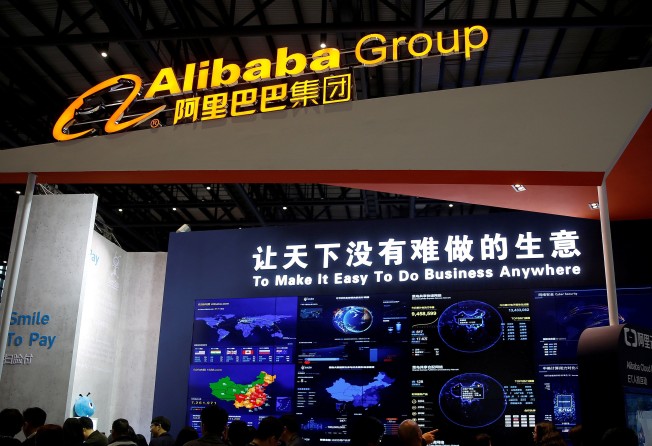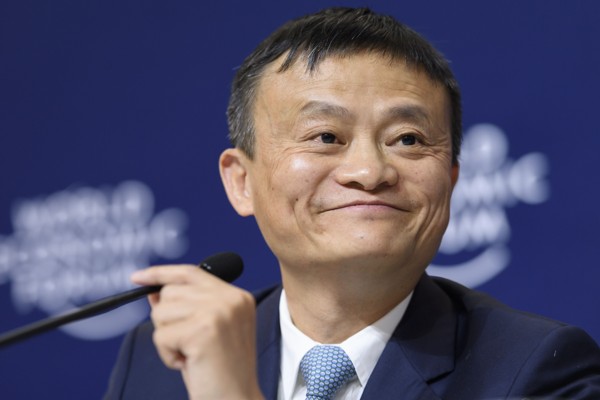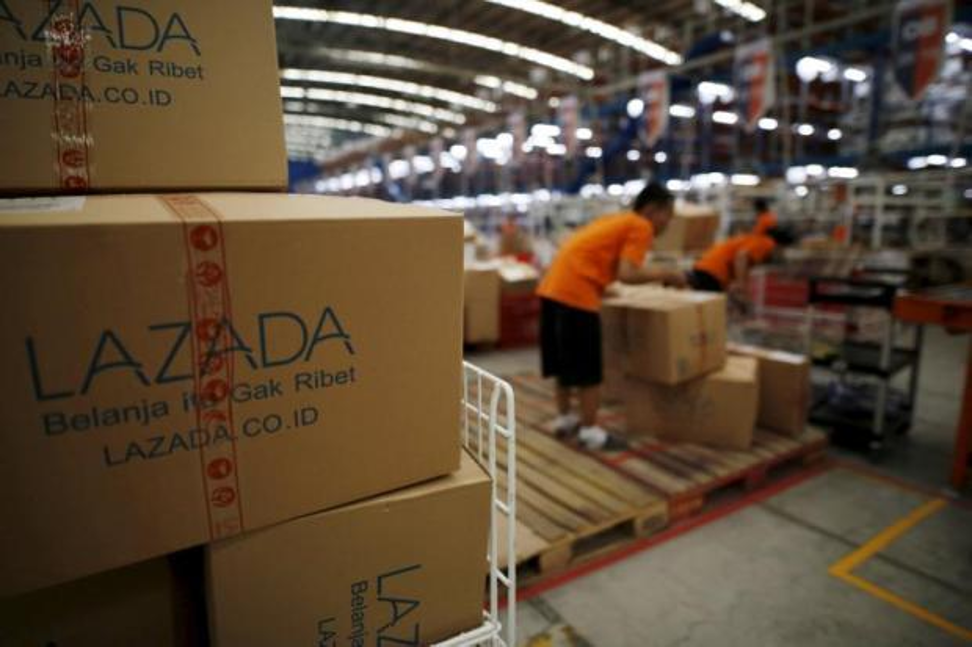
Alibaba posts record 2016 revenue of US$22.96 billion, even as profit slips

Alibaba Group’s 2016 revenue soared to a record, spurred by the increasing penchant by Chinese consumers to buy everything online, from clothing to food and electronics. Net profit missed analysts’ estimates due to a larger tax bill and investments in cloud computing.
Revenue jumped 56 per cent to 158.27 billion yuan (US$22.96 billion) for the year ended March 31, even as net income fell 42 per cent to 41.23 billion yuan. Fourth-quarter sales rose for the seventh consecutive quarter to 38.58 billion yuan, while net income jumped 85 per cent to 9.85 billion yuan during the three months.
Alibaba’s shares plunged as much as 5.6 per cent in New York trading after results were announced, before recovering to close the day 0.5 per cent higher at US$121.27.
“The core metrics that we care about in terms of segment results show very good momentum across the board,” said MKM Partners’ analyst Rob Sanderson in Connecticut, who has a “buy” recommendation on the stock. “Some non-operating lines pinched the earnings and that’s likely what the stock’s reacting to, but there’s lots of variability and lack of predictability that [make it difficult] for analysts to understand what contributions and other income might come from ads.”

“We reported another excellent quarter, with revenue growth accelerating to 60 per cent, the highest growth rate we’ve achieved since our IPO,” Alibaba’s chief financial officer Maggie Wu said in a phone conference announcing the Hangzhou-based company’s results.
Alibaba, which also owns the South China Morning Post, operates four major business segments, divided into e-commerce, digital media and entertainment, innovation initiatives and cloud computing.
The company, whose Singles’ Day on November 11 every year is the biggest online shopping festival on earth, reported 3.8 trillion yuan of gross merchandise volume last year. Up to 507 million customers used Alibaba’s China retail platforms on their mobile devices in March, an increase of 14 million from December.
“The traditional thinking that pits e-commerce against physical commerce no longer holds,” said Alibaba’s co-founder and executive vice chairman Joseph Tsai Chung-hsin. “The distinction between online and offline retail is going away because of the mobile phone. Traditional commerce is buying stuff on a desktop computer, but Chinese consumers now have mobile phones which allow them to buy anything, anytime, anywhere.”

Alibaba has been making large investments into its digital media and entertainment businesses to compete with Tencent and Baidu for a share of the digital content market.
In October 2016, Alibaba’s film production arm Alibaba Pictures invested in Hollywood director Steven Spielberg’s production company Amblin Partners to produce, distribute and market films both in China and around the world. Alibaba’s founder and chairman Jack Ma Yun has also said that the firm will invest 50 billion yuan over the next three years in Hollywood films.
The segment reported a loss of 9.9 billion yuan for the year, more than double the 4.1 billion yuan loss a year earlier.
“In the near term, there will be fierce competition for licensed content [in the entertainment market], but like other players we have moved to develop proprietary content,” Tsai said. “ Over time, the cost of content should come down.”
Alibaba’s stock has risen 52 per cent in 12 months, boosting the company’s market value to exceed US$300 billion, in the process making Ma the wealthiest man in China, according to a Forbes ranking.
The company, which operates the Taobao and Tmall platforms, announced a US$6 billion share buyback programme over two years.

The Chinese e-commerce giant has also set its sights on expanding globally. In March, Alibaba and the Malaysian government jointly launched the first electronic world trade platform (EWTP) in Malaysia, an internet-based platform that will allow small and medium-sized businesses in Malaysia and China to trade with each other.
“Internationalisation is a core strategy [for Alibaba] for the next five to 10 years, and we are happy to see concrete progress in Southeast Asia,” said chief executive Daniel Zhang, adding that Singapore-based e-commerce platform Lazada has seen its business grow “very well” since Alibaba’s US$1 billion investment in the company last year.
Alibaba decided to focus on Southeast Asia as the first step to internationalisation because it is an “important region” with a large population, according to Zhang. “Chinese products are very popular in this market. We will continue to invest in international markets but there is still a long way to go,” he said.
With reporting by Rob Delaney in New York.